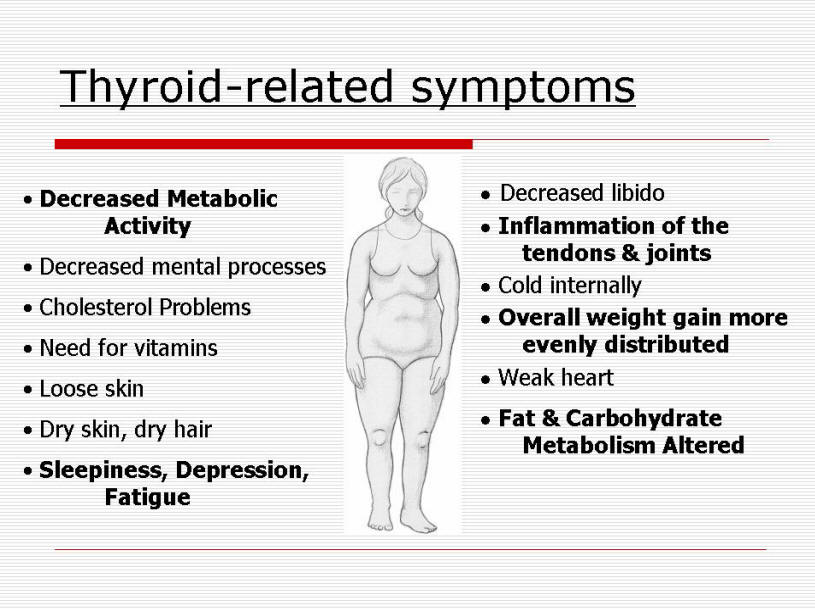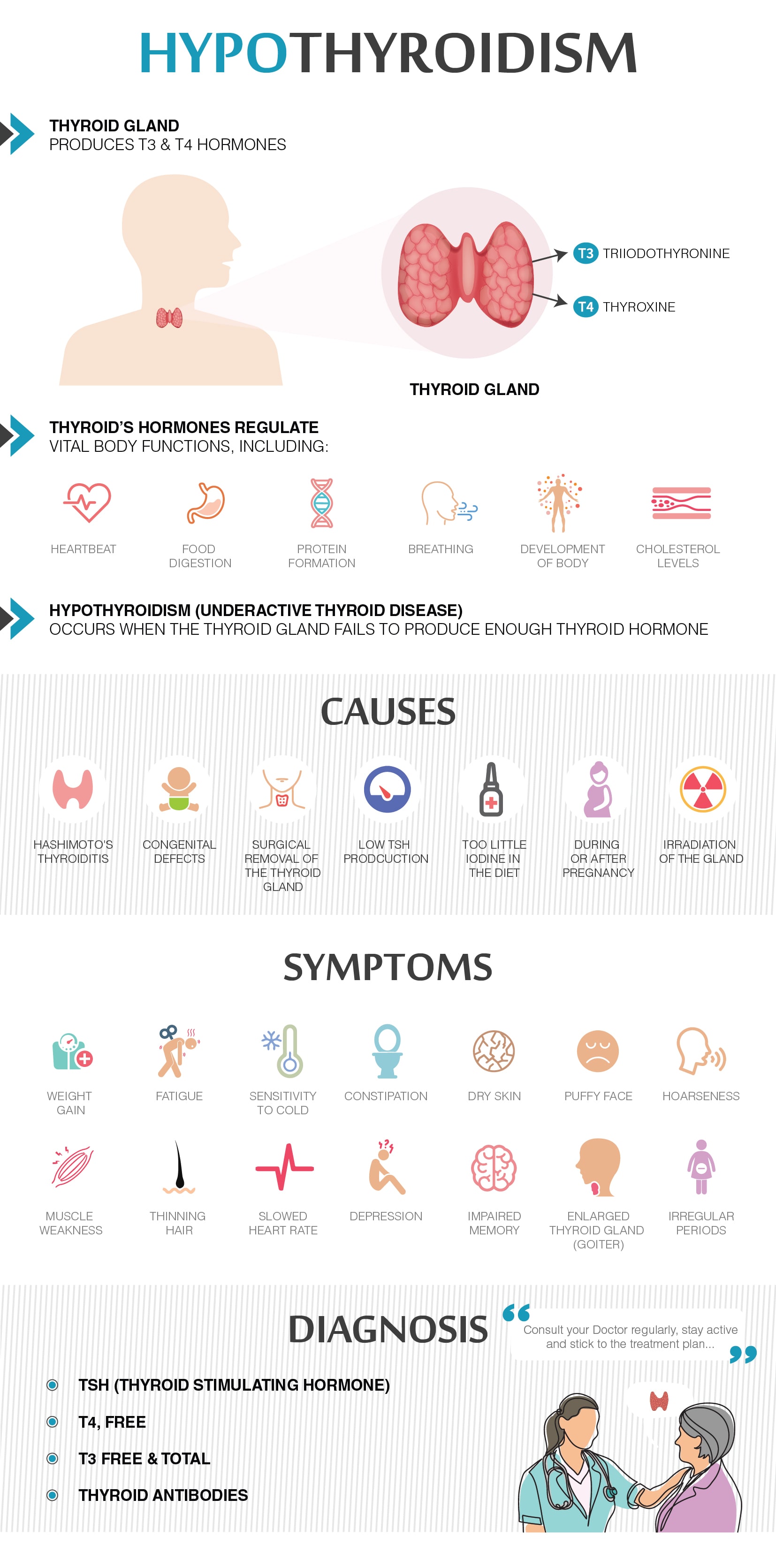

Levothyroxine should be crushed and given once daily, mixed with a small amount of water, formula, or breast milk using a dropper or syringe. Many children will require treatment for life. What is the treatment for congenital hypothyroidism?Ĭongenital hypothyroidism is treated by giving thyroid hormone medication in a pill form called levothyroxine. In some cases, the doctor may order a thyroid scan to see if the thyroid gland is missing or too small. Before starting treatment, your baby's doctor will order a blood sample from a vein to confirm the diagnosis of congenital hypothyroidism.

When there is a positive result (a low level of thyroid hormone with a high level of thyroid-stimulating hormone, called TSH, from the pituitary), the screening program immediately notifies the baby's doctor, usually before the baby is 2 weeks old.

#Thyroid issues update#
See the American Academy of Pediatrics (AAP) policy statement, Update of Newborn Screening and Thereapy for Congenital Hypothyroidism, for more information. This process is called newborn screening. Given the difficulty in diagnosing congenital hypothyroidism in the newborn period based on signs and symptoms, all hospitals in the United States, under the supervision of state health departments, screen for this disease using blood collected from your baby's heel before discharge from the hospital. How is congenital hypothyroidism diagnosed? In these babies, the doctor may find a puffy face, poor muscle strength, and a large tongue with a distended abdomen and larger-than-normal fontanelles (soft spots) on the head.

Prolonged jaundice (yellow skin) after birth However, sometimes when hypothyroidism is severe, there may be: The symptoms of congenital hypothyroidism in the first week of life are not usually obvious. What are the signs and symptoms of congenital hypothyroidism? This means if one child is affected, it is unlikely that other children you may have in the future will suffer from the same condition. Congenital hypothyroidism is usually not inherited through families. In a small number of cases, medications taken during pregnancy, mainly medications for treating an overactive thyroid, can lead to congenital hypothyroidism, which is temporary in most cases. Also, sometimes the thyroid is missing the signal from the pituitary (master) gland, which tells it to produce thyroid hormone. Sometimes the gland is formed properly but does not produce hormone in the right way. What causes congenital hypothyroidism?Ĭongenital hypothyroidism most often occurs when the thyroid gland does not develop properly, either because it is missing, is too small, or ends up in the wrong part of the neck. However, because there is excellent treatment available, with early diagnosis and treatment, your baby is likely to lead a normal, healthy life. Thyroid hormone is important for your baby's brain development as well as growth, therefore, untreated congenital hypothyroidism can lead to intellectual disabilities and growth failure. The condition occurs in about 1 in 3,000-4,000 children, is most often permanent and treatment is lifelong. Congenital hypothyroidism occurs when a newborn infant is born without the ability to make normal amounts of thyroid hormone. Hypothyroidism refers to an underactive thyroid gland.


 0 kommentar(er)
0 kommentar(er)
